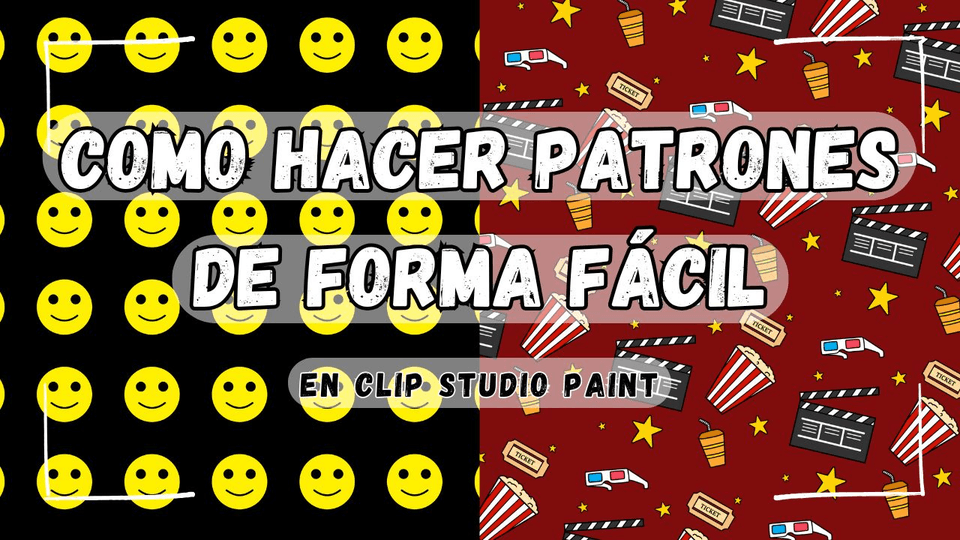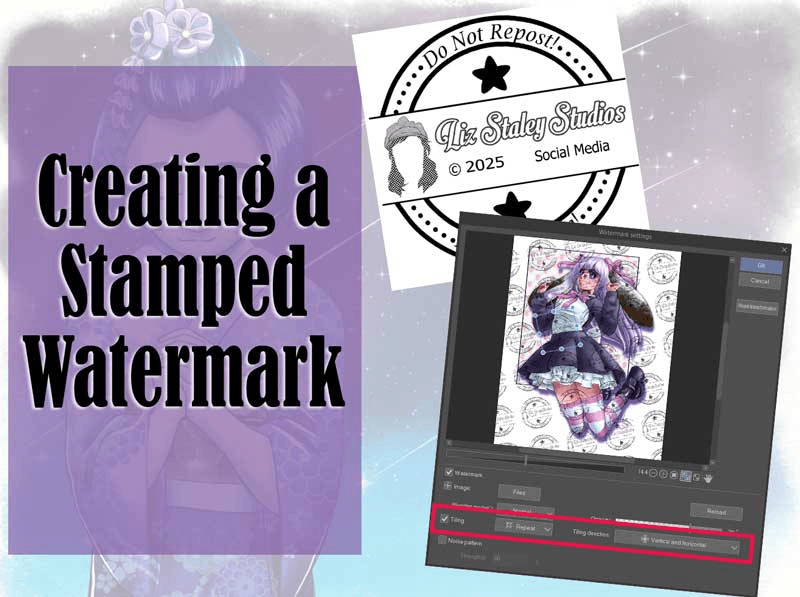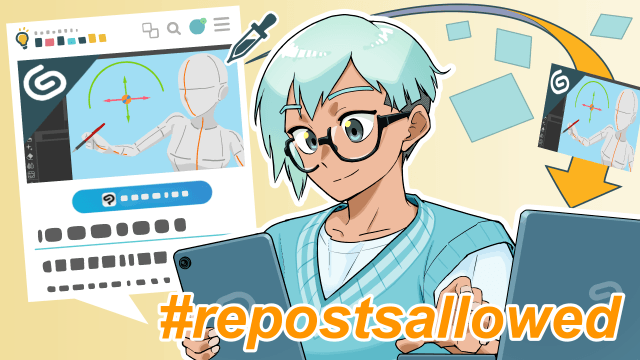Turn a Photo Into Cyberpunk Art in Clip Studio Paint
Introduction
Hello! My name is Hira Karmachela a.k.a BABE ODED. In this post I will share my experience in turning a photo into cyberpunk art using Clip Studio Paint. To make this work I used two international versions of Clip Studio Paint, which are CSP for Android Mobile and CSP for Windows PC. So, this experience was very exciting for me. That's awesome.
I hope this post will be interesting tips for those of you who are looking for creating cyberpunk art or how to manipulate your photos using CSP.
About Cyberpunk-Art
Cyberpunk is a sci-fi genre that describes a dystopian condition where the world has reached technological sophistication but is in an era of chaos and darkness.
In the context of art, cyberpunk is visually depicted with a distinctive color combination. The noir color contrasts with neon colors like light cyan and light pink and colors that match cyberpunk art.
Objects that are commonly raised in cyberpunk art have futuristic designs that showcase technological advancements, such as artificial intelligence and electronic things. However, at the same time, cyberpunk art also brings up dark things like hackers, pandemic era, and street life.
#1 Setting a Shooting Location
As the title of this tip implies, the first step to take is to set the shooting location to match the cyberpunk theme. In this work, I will take a picture of my work station where I will also take a selfie in it.
For effectiveness and efficiency in color processing in accordance with the cyberpunk theme, it is highly recommended that real lighting be presented in the shooting process.
In this case, I have prepared a neon light tube in blue.
And other lights as the main lighting with adjustable colors.
No less important, before taking a photo shoot, make sure other properties that support the cyberpunk theme can be presented. I have prepared a denim jacket, mask, sunglasses, and a fedora hat (this is my signature) to support the selfie on this cyberpunk theme.
#2 Taking Photos Via Clip Studio Paint Mobile Version
The second step is to take a photo. In this case, you can just use any camera and then copy the images to your PC. But, I want to give the most effective steps you can do using Clip Studio Paint.
Open Clip Studio Paint on your (mobile) cellphone. Then create a new canvas with the dimensions 1920px by 1080px.
Tap burger menu on the left side then go to File> Import> Camera. Then the application will connect with your cellphone camera.
Take photos with good composition and the best settings your phone can do. Then tap the tick icon to save the photo.
Fabulous, photos are imported directly onto canvas.
You can adjust the position first or you can confirm it by selecting the tool in the palette on the left.
Now, go to File>Save for saving the current working file.
Back again to the File>Close for closing the current working file.
#3 Synchronizing Works on Mobile and PC
After the photo file are stored on the CSP mobile version, the next step is to synchronize it so that it can be opened and processed in the CSP PC version. To do this, select the file to be switched. Activate the "switch syncing" feature as shown below.
Or you can tap the arrow icon as shown below, then select "Sync now".
#4 Downloading and Opening Synced File on PC
Open Clip Studio Paint on your PC. Then go to the "Manage works" tab. Then select the "Cloud" tab.
Select the file that were just synced from your phone. Then click "Download as new".
Then go to the "This device" tab. Now you will find the synchronized files already stored on your PC. Select the file and right click, then select "Open in PAINT".
#5 Rasterizing Photos
Now we are ready to turn photos into cyberpunk art. You can predefine the photo to ensure balance and focus points with the "Operation" tool.
Select another tool to confirm the change in photo composition.
Before we edit this photo, it's better if we copy the photo layer first. So we still have the original version of this photo. For that, select the photo layer then go to Layer> Duplicate Layer.
Now that you have a copy of the photo layer, rename the layer to distinguish which one is original and which one to edit. Then hide the original photo layer.
If you notice, the photo layer has an unusual icon. This icon indicates that the layer cannot be edited. That is, you cannot brush a pen or a brush, or even apply color adjustments to the layer.
To be able to edit it, you have to convert the layer as it is a raster layer. The trick is, go to Layer> Rasterize.
Ok, now the "for edit" layer is editable.
Next, we will add effects or filters to the "for edit" photo layer to give it an artistic impression. Go to Filter> Effect> Artistic.
A dialog box will appear, then input the settings in the fields according to the desired effect, or you can follow the settings I made.
Next, we add color adjustments without breaking the layer directly. The trick is to use a correction layer where it will overlap on top of the main layer.
The trick is, go to Layer> New Correction Layer> Brightness / Contrast.
The setting window will appear then input numbers, I set the Brightness to -3 and Contrast to 3.
Now let's add another correction layer to adjust the Hue / Saturation / Luminosity of our photo. Then add 50 points for the Saturation.
Once again, add a correction layer to adjust the Color balance. Then set the Shadows -25 towards Cyan, Half tone -25 towards Magenta, and Highlight -25 towards Yellow.
Ok, the color adjustment is complete, and we will have a very significant result in the appearance of our photo. The following is a sequence of correction layers that we apply on top of the "for edit" photo layer.
#6 Manipulating The Background
In this section, the point is to add highlights to the background so that the neon colors are dominant. In addition, it is manipulating several parts to make it seem futuristic, for example changing wood elements into metal elements.
In my photo, I have a wooden table leg, and I want to change it to look like it's made of metal. The trick is, select the wooden object using the Selection Tool> with the Sub Tool "Selection pen". By the way, I really like this tool because it is very effective and efficient for creating selection areas.
Brush on the area you want to make the selection area like using a brush tool continuously.
When the stroke is released, an area selection will be created, adjust the size of the stroke to get a detailed selection area.
Next, we add another correction layer that will be applied specifically to the selection area. Go to Layer> New Correction Layer> Hue / Saturation / Luminosity.
The settings window will appear, input Saturation to -75 and Luminosity to -5.
The table leg has now changed color and resembles a copper color. To make it look more metallic, we have to add highlights and shadows using the "Airbrush Tool".
Do the same for the wall area, add highlights and shadows using neon cyan or pink.
Next, we add accents to the wall with simple glowing lines. Create a new layer with vector type. The trick is to go to Layer> New Layer> Vector layer.
Vector layers have a special feature in the Layers panel. Unlike the raster layer, the lines created on a vector layer will be operated like a vector so that it will be very easy to erase using a vector eraser.
Create a series of lines in such a way as to give a futuristic impression to the wall surface using the Figure Tool with the Sub Tool "Straight line".
Erase unneeded parts of the line easily using the "Vector Eraser".
Ok, this is the result of decorating a wall with simple lines. Now we make these lines shiny by adding highlights and then blurring the edges of the lines so that they blend with the wall color. But before that, first rasterize the vector layer.
After that, add more highlights and shadows on the walls and other objects that support the cyberpunk feel.
#7 Manipulating The Figure
Now that the background has enough of a cyberpunk feel, now we turn to the figures in the photo. I want to make my figure look like a cyborg. For that, we need to manipulate some parts of the body to make it look like they are made of metal.
The method is the same as processing the table leg, we select the face and left hand area using the "Selection pen" tool. Then add a Correction layer to adjust the Saturation to -100.
Create a new raster layer to create doodles which manipulate the left hands and face so they look like cyborgs.
On this new layer, use a pen, brush, and or figure tool to make details of the cyborg's body.
Add a highlight using the Airbrush Tool to the cyborg's left hand to make it look more like strong metal.
Do the same with the face. Use the Blend / Blur Tool to manipulate the glasses. Then add strokes of neon cyan and pink.
Now we turn to the neck. In this section I want to create a big characteristic of a cyborg which is a mixture of human and machine. In this section I want to show the exposed parts of the body so that we can see the machine inside.
Draw the part that will be exposed on the neck as interesting as possible, I used the Curve (Figure) Tool.
Next, make a selection area on the part of the neck that will be exposed. Then add a correction layer to adjust the Saturation to -100.
Then, draw machine parts such as cables or metal pipes using a pen / brush tool, and add a touch of neon cyan color.
Add more highlights with a neon cyan / pink color to the supports.
As a finishing touch to complete the cyberpunk theme, I wanted to add a sense of technological sophistication to this piece. I will make a holographic projection from the computer screen.
Create a new vector layer, then trace the computer screen rectangle shape in yellow.
Resize the screen box by going to Edit> Transform> Free Transform. Then set the perspective.
Draw some additional lines to add a sense of projection and perspective lines. Rasterize the layer then erase some of the lines with a Soft Eraser to create a holographic impression.
To finish and complement this piece, I add the BABE ODED logo or wordmark and give it a holographic feel in the same way I created the projection lines.
OK! That's all I can share. Hope it is useful and please support me to make more tips. And this is the final result of this Cyberpunk Art.
Subscribe my YouTube channel:














Comment